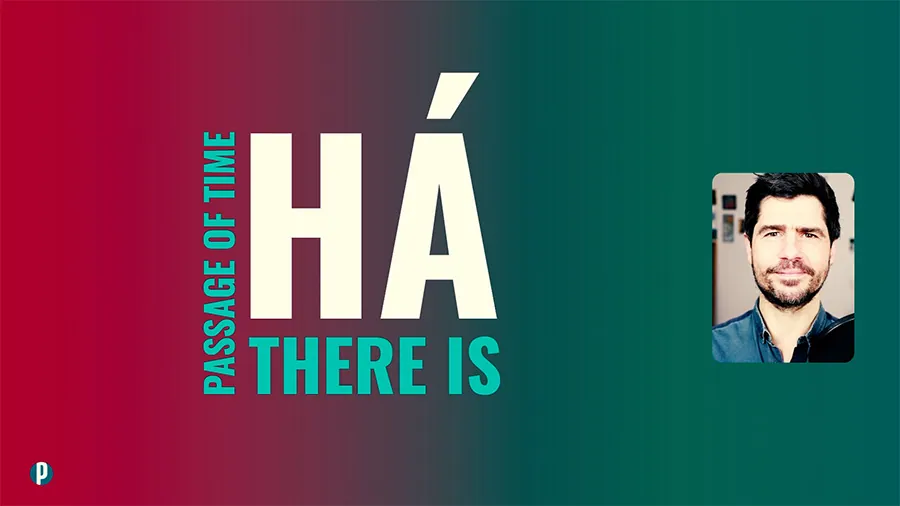
The Portuguese Verb Haver
If you’ve been learning Portuguese for a while, you’ve probably noticed that little word há popping up everywhere. Indeed, há is a verb form of Haver, which in turn is a verb with wide usage.
So, when do we use the Portuguese verb Haver?
In short, Haver is used to indicate the existence or occurrence of something and to express time duration. Additionally, we use Haver as an auxiliary verb to form Perfect tenses, among other things.
Here are a few examples:
(1) Há algumas coisas que não entendo.
There are a few things I can’t quite understand.
(2) O Gabriel vive no Porto há 4 meses.
Gabriel has been living in Porto for 4 months.
(3) Ela havia estado no Brasil antes de vir para Portugal.
She had been to Brazil before she came to Portugal.
Let’s dive in.
Time flow
Durative actions
O Gabriel vive no Porto há 4 meses.
Gabriel has been living in Porto for 4 months.
O Gabriel viveu no Porto 4 meses.
Gabriel lived in Porto for 4 months (not anymore).
Punctual actions (occurred in the past)
A Mariana visitou o Brasil há 2 anos.
Mariana visited Brazil 2 years ago.

Olá! I'm Pedro and I'm your Portuguese teacher.
Ready to unlock the beauty of European Portuguese? Portuguesepedia is your key! This all-in-one platform provides a wealth of learning resources, from bite-sized video lessons to immersive idiomatic dips. Perfect your pronunciation and aural comprehension with listening drills and solidify your grammar with in-depth articles. Start your Portuguese journey today!
Share this article
Get my guide "Key Strategies to Learn Portuguese" for FREE.


